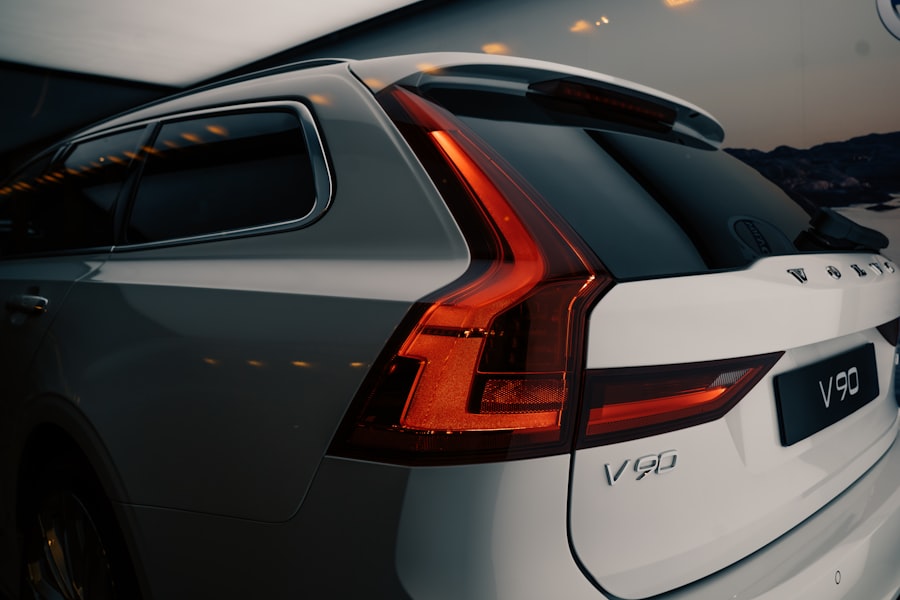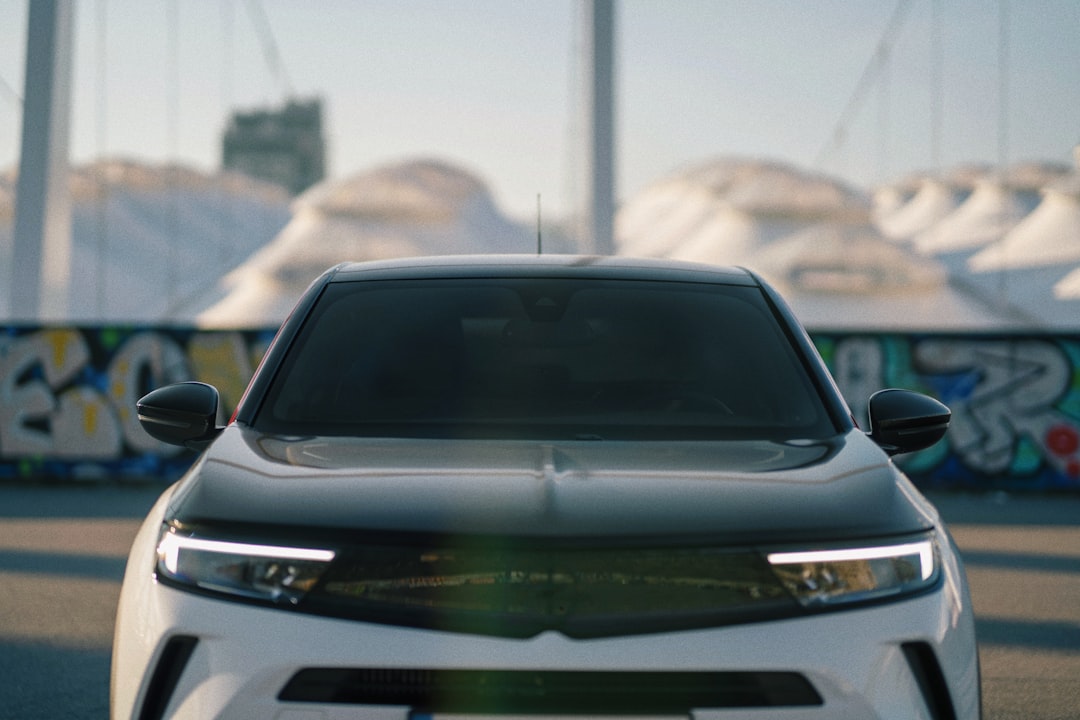The automotive industry has undergone a significant transformation in recent years, largely driven by the rise of digital marketing. Traditional marketing methods, such as print advertisements and television commercials, have gradually given way to more dynamic and interactive online strategies. This shift is not merely a trend; it reflects a fundamental change in consumer behavior.
Today’s car buyers are more informed than ever, often conducting extensive research online before making a purchase decision. According to a study by Google, nearly 90% of car buyers use the internet during their shopping process, highlighting the necessity for automotive brands to establish a robust digital presence. As a result, automotive companies are increasingly investing in digital marketing strategies that encompass search engine optimization (SEO), pay-per-click (PPC) advertising, social media engagement, and content marketing.
These strategies allow brands to reach potential customers at various touchpoints throughout their buying journey. For instance, a well-optimized website can attract organic traffic from search engines, while targeted PPC campaigns can drive immediate interest in specific models or promotions. Furthermore, social media platforms provide an avenue for brands to engage with consumers directly, fostering a sense of community and brand loyalty that was previously unattainable through traditional marketing channels.
Key Takeaways
- Digital marketing is transforming how automotive brands reach and engage customers.
- Personalized advertising leverages data to target specific consumer segments effectively.
- Influencer marketing and social media play crucial roles in shaping automotive brand perception.
- Virtual and augmented reality offer immersive experiences that enhance car marketing.
- Sustainable messaging and innovative technologies are shaping the future of automotive advertising.
Personalized Advertising: Targeting the Right Audience
Personalized advertising has emerged as a cornerstone of effective digital marketing in the automotive sector. By leveraging data analytics and consumer insights, automotive brands can tailor their advertising messages to resonate with specific audience segments. This level of personalization goes beyond simply addressing consumers by their names; it involves understanding their preferences, behaviors, and needs.
For example, a luxury car brand might target affluent consumers with ads showcasing high-end features and exclusive offers, while a budget-friendly manufacturer could focus on value-driven messaging for cost-conscious buyers. The effectiveness of personalized advertising is underscored by its ability to enhance customer engagement and conversion rates. Research indicates that personalized ads can lead to a 20% increase in sales compared to non-personalized campaigns.
Automotive brands are utilizing various tools and technologies to gather data on consumer behavior, such as website interactions, social media engagement, and previous purchase history. This data enables marketers to create highly targeted campaigns that speak directly to the interests of potential buyers, ultimately driving higher engagement and fostering brand loyalty.
Utilizing Data and Analytics for Smarter Advertising

In the realm of digital marketing, data is often referred to as the new oil, and for good reason. The automotive industry is harnessing the power of data analytics to refine advertising strategies and improve overall marketing effectiveness. By analyzing consumer behavior patterns, preferences, and demographics, automotive brands can make informed decisions about where to allocate their marketing budgets and how to craft their messaging.
For instance, if data reveals that a particular demographic is showing increased interest in electric vehicles (EVs), manufacturers can adjust their advertising focus accordingly. Moreover, advanced analytics tools enable automotive marketers to track the performance of their campaigns in real-time. This capability allows for quick adjustments based on what is working and what isn’t.
For example, if a specific ad campaign is underperforming on social media but thriving on search engines, marketers can reallocate resources to maximize impact. Additionally, predictive analytics can forecast future trends based on historical data, helping brands stay ahead of the curve in an ever-evolving market landscape.
The Role of Influencer Marketing in the Automotive Industry
| Metric | Description | Example Value | Impact on Automotive Industry |
|---|---|---|---|
| Engagement Rate | Percentage of audience interacting with influencer content | 4.5% | Higher engagement leads to increased brand awareness and customer interest |
| Audience Reach | Number of followers or viewers exposed to the campaign | 1.2 million | Broader reach helps in targeting diverse customer segments |
| Conversion Rate | Percentage of audience taking desired action (e.g., test drive booking) | 3.2% | Directly influences sales and lead generation |
| Cost per Engagement (CPE) | Average cost spent per audience interaction | 2.75 | Helps optimize marketing budget allocation |
| Brand Sentiment | Positive, neutral, or negative perception from influencer campaigns | 85% Positive | Improves brand image and customer loyalty |
| Influencer Authenticity Score | Measure of influencer credibility and trustworthiness | 8.7/10 | Higher authenticity increases campaign effectiveness |
| Campaign ROI | Return on investment from influencer marketing efforts | 350% | Indicates profitability and success of marketing strategy |
Influencer marketing has gained traction across various industries, and the automotive sector is no exception. Collaborating with influencers—individuals who have established credibility and a substantial following on social media—can significantly amplify a brand’s reach and credibility. Automotive influencers often provide authentic reviews and insights into vehicles, which resonate with their followers who trust their opinions.
This form of marketing is particularly effective among younger consumers who are more likely to seek recommendations from trusted figures rather than traditional advertisements. For example, an automotive brand might partner with a popular YouTube influencer who specializes in car reviews. The influencer could create engaging content that showcases the vehicle’s features while providing an honest assessment of its performance.
This not only generates buzz around the car but also allows potential buyers to see the vehicle in action through relatable storytelling. The authenticity of influencer marketing can lead to higher engagement rates and conversions, as consumers are more inclined to consider a purchase when they feel connected to the source of information.
Virtual Reality and Augmented Reality in Car Marketing
The integration of virtual reality (VR) and augmented reality (AR) technologies into automotive marketing strategies represents a groundbreaking shift in how consumers experience vehicles before making a purchase. These immersive technologies allow potential buyers to engage with cars in ways that were previously unimaginable. For instance, VR showrooms enable customers to explore different models from the comfort of their homes, providing a 360-degree view of the vehicle’s interior and exterior features.
AR applications take this experience a step further by allowing users to visualize how a car would look in their driveway or garage through their smartphones or tablets. Brands like BMW have already begun implementing AR features in their marketing campaigns, enabling users to see detailed specifications and color options superimposed onto real-world environments. This interactive approach not only enhances customer engagement but also helps bridge the gap between online research and physical dealership visits.
Sustainable and Eco-Friendly Messaging in Automotive Advertising

As environmental concerns continue to rise globally, automotive brands are increasingly adopting sustainable and eco-friendly messaging in their advertising strategies. Consumers are becoming more conscious of their carbon footprints and are actively seeking out vehicles that align with their values regarding sustainability. This shift has prompted manufacturers to highlight their efforts in producing electric vehicles (EVs), hybrid models, and fuel-efficient cars.
For example, Tesla has built its brand identity around sustainability by promoting its electric vehicles as not only environmentally friendly but also high-performance alternatives to traditional gasoline-powered cars. Their marketing campaigns often emphasize the reduction of greenhouse gas emissions and the benefits of renewable energy sources. By aligning their messaging with consumer values around sustainability, automotive brands can attract environmentally conscious buyers while also contributing positively to public perception.
The Impact of Social Media on Car Marketing Strategies
Social media has revolutionized how automotive brands connect with consumers, providing platforms for direct engagement and interaction. Brands can leverage social media channels such as Instagram, Facebook, Twitter, and TikTok to showcase new models, share customer testimonials, and promote special offers. The visual nature of these platforms is particularly advantageous for the automotive industry, where aesthetics play a crucial role in consumer decision-making.
Moreover, social media allows for real-time feedback from consumers, enabling brands to gauge public sentiment about their products and campaigns quickly. For instance, if a new car model receives overwhelmingly positive feedback on social media platforms, manufacturers can capitalize on this momentum by amplifying related content or launching targeted advertising campaigns. Conversely, negative feedback can serve as valuable insight for brands to address concerns proactively or adjust their messaging strategies.
Embracing Innovation: The Future of Automotive Advertising Technology
The future of automotive advertising technology is poised for further innovation as advancements continue to reshape the landscape. Emerging technologies such as artificial intelligence (AI), machine learning, and blockchain are set to play pivotal roles in enhancing marketing strategies within the industry. AI-driven algorithms can analyze vast amounts of consumer data to predict trends and personalize advertising efforts more effectively than ever before.
Additionally, blockchain technology holds promise for improving transparency in advertising transactions and ensuring that consumers receive authentic information about vehicles. As consumers become increasingly wary of misinformation and deceptive practices, blockchain can provide verifiable data regarding vehicle history and ownership records. Furthermore, as autonomous vehicles become more prevalent, advertising opportunities will evolve alongside them.
Imagine a future where self-driving cars feature digital displays that showcase targeted advertisements based on passengers’ preferences or destinations. This level of personalization could redefine how brands engage with consumers during their daily commutes. In conclusion, the automotive industry is at the forefront of embracing digital marketing innovations that cater to evolving consumer behaviors and preferences.
From personalized advertising strategies to immersive technologies like VR and AR, brands are leveraging these advancements to create meaningful connections with potential buyers while navigating an increasingly competitive landscape. As technology continues to evolve, so too will the strategies employed by automotive marketers seeking to capture the attention of today’s discerning consumers.




